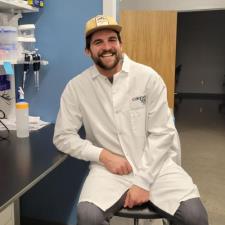
Rene N. answered • 12/26/23
DrPH in Epidemiology with 16+ Years of Experience Working and Teaching
Prescription drug abuse refers to the use of prescription medication in a manner not intended by the prescribing doctor. This can include using someone else's prescription, using the medication for the experience or feelings it produces rather than for the intended medical reason, or using the medicine in a way or dose other than prescribed. It is an important issue for public health professionals for several reasons:
- Increased Morbidity and Mortality: Prescription drug abuse often leads to adverse health outcomes, including overdose and death. Opioids, a class of drugs commonly abused, are particularly associated with a high risk of overdose.
- Mental Health Issues: Abuse of these substances can lead to or exacerbate mental health disorders. For example, abuse of prescription stimulants can lead to severe psychological addiction and physical side effects.
- Economic Burden: The misuse of prescription drugs is a significant economic burden due to healthcare costs, lost productivity, addiction treatment, and criminal justice involvement.
- Increased Healthcare Strain: Individuals abusing substances may require more frequent medical care, emergency care, or addiction treatment services, placing a strain on healthcare resources.
- Development of Drug-Resistant Strains: In the case of antibiotics, improper use can lead to the development of resistant strains of bacteria, a significant public health threat.
Possible solutions to address prescription drug abuse from a public health/ecological perspective might include:
- Education and Prevention: Initiatives to educate healthcare providers, patients, and the public about the risks associated with prescription drug abuse and proper medication management.
- Monitoring and Regulation: Implementing and enhancing prescription drug monitoring programs (PDMPs) to track the dispensing of certain drugs and prevent "doctor shopping."
- Treatment Accessibility: Increasing access to and funding for addiction treatment services, including medication-assisted treatment (MAT) and counseling.
- Safe Disposal Programs: Encouraging the development and use of safe disposal methods for unused medications to prevent their diversion and abuse.
- Policy Changes: Advocating for changes in prescription practices, such as setting limits on the quantity of drugs prescribed and requiring tamper-resistant formulations.
- Community and Environmental Interventions: Engaging community organizations and stakeholders in creating supportive environments that reduce the demand for drugs and offer alternative coping mechanisms.
Addressing prescription drug abuse requires a multifaceted approach involving healthcare providers, public health officials, law enforcement, educators, and community organizations to effectively reduce the incidence and impact of this issue on society.




